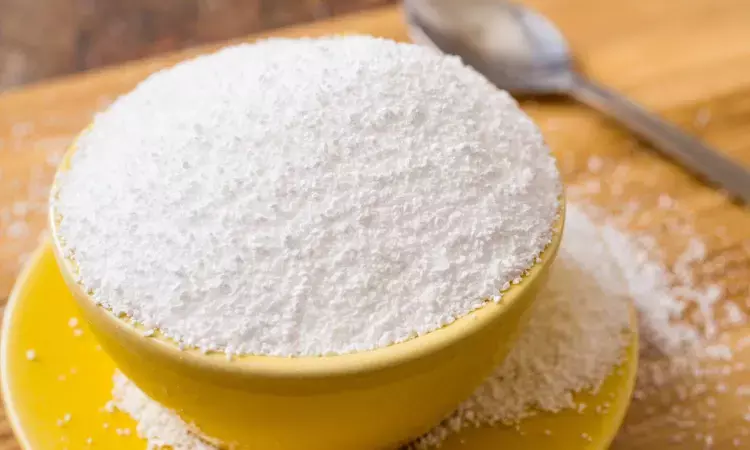- Home
- Medical news & Guidelines
- Anesthesiology
- Cardiology and CTVS
- Critical Care
- Dentistry
- Dermatology
- Diabetes and Endocrinology
- ENT
- Gastroenterology
- Medicine
- Nephrology
- Neurology
- Obstretics-Gynaecology
- Oncology
- Ophthalmology
- Orthopaedics
- Pediatrics-Neonatology
- Psychiatry
- Pulmonology
- Radiology
- Surgery
- Urology
- Laboratory Medicine
- Diet
- Nursing
- Paramedical
- Physiotherapy
- Health news
- Fact Check
- Bone Health Fact Check
- Brain Health Fact Check
- Cancer Related Fact Check
- Child Care Fact Check
- Dental and oral health fact check
- Diabetes and metabolic health fact check
- Diet and Nutrition Fact Check
- Eye and ENT Care Fact Check
- Fitness fact check
- Gut health fact check
- Heart health fact check
- Kidney health fact check
- Medical education fact check
- Men's health fact check
- Respiratory fact check
- Skin and hair care fact check
- Vaccine and Immunization fact check
- Women's health fact check
- AYUSH
- State News
- Andaman and Nicobar Islands
- Andhra Pradesh
- Arunachal Pradesh
- Assam
- Bihar
- Chandigarh
- Chattisgarh
- Dadra and Nagar Haveli
- Daman and Diu
- Delhi
- Goa
- Gujarat
- Haryana
- Himachal Pradesh
- Jammu & Kashmir
- Jharkhand
- Karnataka
- Kerala
- Ladakh
- Lakshadweep
- Madhya Pradesh
- Maharashtra
- Manipur
- Meghalaya
- Mizoram
- Nagaland
- Odisha
- Puducherry
- Punjab
- Rajasthan
- Sikkim
- Tamil Nadu
- Telangana
- Tripura
- Uttar Pradesh
- Uttrakhand
- West Bengal
- Medical Education
- Industry
Artificial sweetener use may increase risk of type 2 diabetes, reveals study

France: A recent study published in Diabetes Care discovered an association between higher intakes of artificial sweeteners and an increased risk of type 2 diabetes compared to non-consumption.
"The findings of positive associations between intake of artificial sweetener and increased risk of type 2 diabetes strengthen the evidence that these additives may not be safe sugar alternatives," the researchers wrote. "The study provides important insights in the context of ongoing worldwide reevaluation of artificial sweeteners by health authorities."
Artificial sweeteners provide sweetness to beverages and food like coffee and tea, without the addition of significant calories. Also, they are ingredients widely used in pre-packed food. Hence, they have become a popular choice, particularly among those who are trying to burn calories or lose weight.
Charlotte Debras, the University of Paris Cité (CRESS), Bobigny, France, and collages aimed to investigate the relationships between artificial sweeteners, accounting for all dietary sources (total and by type of artificial sweetener) and type 2 diabetes (T2D) risk, in a large-scale prospective cohort.
The analyses included 105,588 participants from the web-based NutriNet-Santé study. Accurate assessment of artificial sweetener intakes from all dietary sources was done through repeated 24-h dietary records, including commercial names and brands of industrial products, merged with quantitative and qualitative food additive composition data.
Cox proportional hazard models were used to investigate associations between artificial sweeteners (total, aspartame, acesulfame potassium [K], and sucralose) and type 2 diabetes after adjusting for potential confounders, including weight variation during follow-up.
The authors reported the following findings:
- During a median follow-up of 9.1 years (946,650 person-years, 972 incident type 2 diabetes), higher consumers of artificial sweeteners (i.e., above the sex-specific medians of 16.4 mg/day in men and 18.5 mg/day in women) had higher risks of developing T2D (hazard ratio [HR] 1.69), compared with nonconsumers.
- Positive associations were also observed for individual artificial sweeteners: aspartame (HR 1.63), acesulfame-K (HR 1.70), and sucralose (HR 1.34).
The researchers wrote, "We cannot eliminate the potential for reverse causality; however, many sensitivity analyses were computed to limit this and other potential biases. These findings of positive associations between intake of artificial sweetener and increased T2D risk strengthen the evidence that these additives may not be safe sugar alternatives."
"This study provides important and novel information in the context of ongoing reevaluation of artificial sweeteners by health authorities worldwide," they concluded.
Reference:
Charlotte Debras, Mélanie Deschasaux-Tanguy, Eloi Chazelas, Laury Sellem, Nathalie Druesne-Pecollo, Younes Esseddik, Fabien Szabo de Edelenyi, Cédric Agaësse, Alexandre De Sa, Rebecca Lutchia, Chantal Julia, Emmanuelle Kesse-Guyot, Benjamin Allès, Pilar Galan, Serge Hercberg, Inge Huybrechts, Emmanuel Cosson, Sopio Tatulashvili, Bernard Srour, Mathilde Touvier; Artificial Sweeteners and Risk of Type 2 Diabetes in the Prospective NutriNet-Santé Cohort. Diabetes Care 2023; dc230206. https://doi.org/10.2337/dc23-0206
Dr Kamal Kant Kohli-MBBS, DTCD- a chest specialist with more than 30 years of practice and a flair for writing clinical articles, Dr Kamal Kant Kohli joined Medical Dialogues as a Chief Editor of Medical News. Besides writing articles, as an editor, he proofreads and verifies all the medical content published on Medical Dialogues including those coming from journals, studies,medical conferences,guidelines etc. Email: drkohli@medicaldialogues.in. Contact no. 011-43720751


